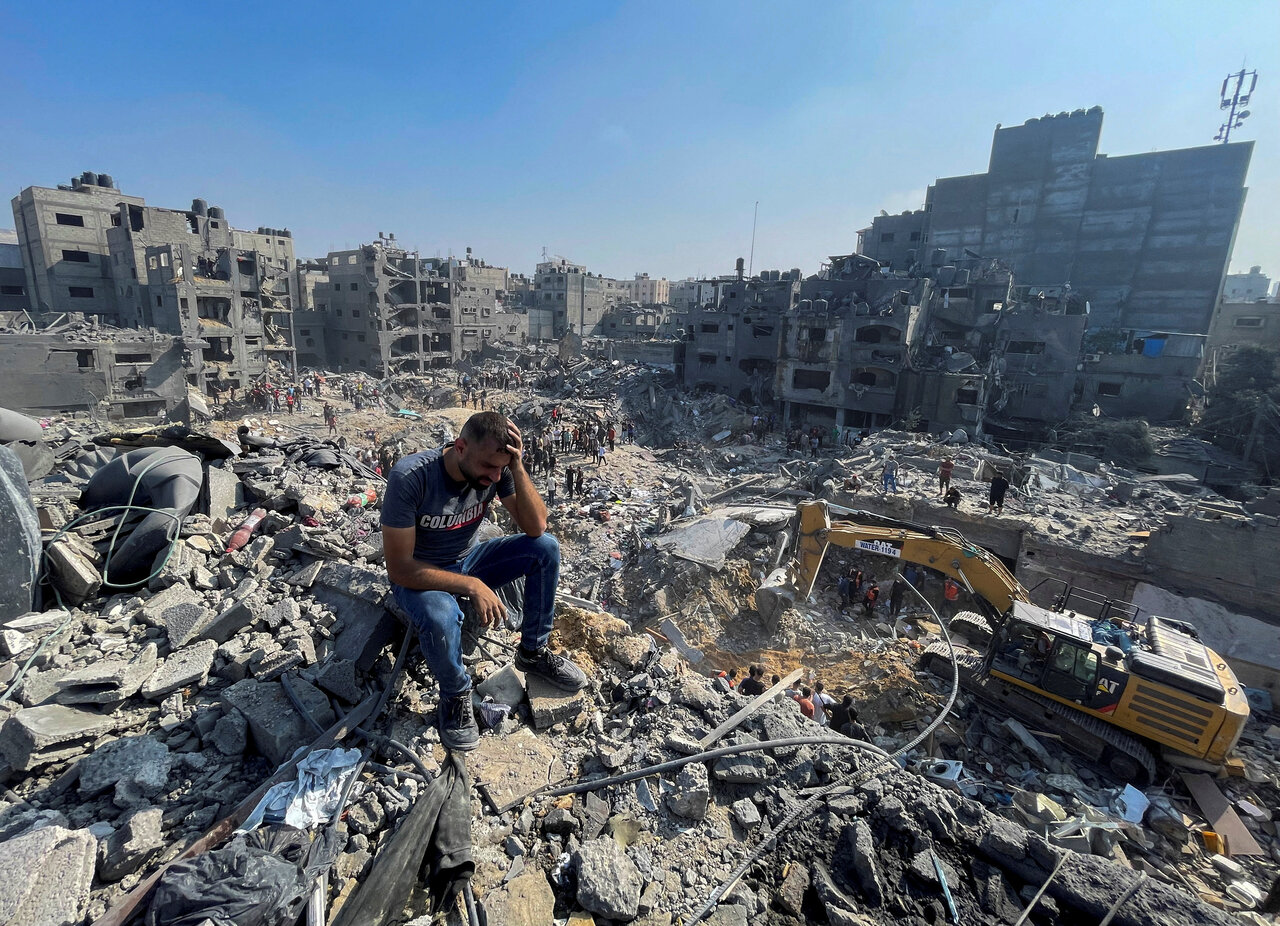Why Gazans have been chosen as Person of The Year

TEHRAN – The Palestinian people have been suffering from the double whammy of suppression and occupation for more than seven decades, with their sufferings exacerbating over time.
The ongoing carnage in Gaza, however, surpasses all previous forms of oppression endured by the longest-suffering nation in the world in terms of brutality and savagery. Starving a nation in its entirety to death was long thought to be found only in history books and horror works of fiction. Yet, the occupation regime of Israel, built on terror and expansionism, showed the degree to which human beings can descend.
Since the start of its genocidal war on the defenseless people of Gaza, the Israeli regime has spared no crime, perpetrating atrocities that would make even the cruelest of people shudder. Pundits and ordinary people around the world have been increasingly struggling to understand the logic behind aimlessly killing hungry people queuing for flour.
Israel constantly states that its goal is to eradicate the Hamas and Islamic Jihad resistance groups but in reality, its actions in Gaza have deliberately targeted civilians, resulting in the forcible displacement of nearly 1.5 million. That has raised alarm bells in regional capitals, particularly Amman and Cairo, which see Israel advancing a deep-rooted Zionist ambition of expelling Palestinians from their historical land.
Over the past few months, Amman and Cairo have been vocal in warning about the consequences of displacing the population of Gaza, with the former even cautioning about war if that happened. These warnings came at a time when Israeli authorities were publicly calling for the depopulation of Gaza.
Israeli Intelligence Minister Gila Gamliel wrote in an article for The Jerusalem Post in November that the international community should work toward the voluntary resettlement of the Gazans outside the Palestinian enclave.
She said, “Instead of funneling money to rebuild Gaza or to the failed UNRWA, the international community can assist in the costs of resettlement, helping the people of Gaza build new lives in their new host countries.”
Describing Gaza as a problem without solution, the Israeli minister noted, “It could be a win-win solution: a win for those civilians of Gaza who seek a better life and a win for Israel after this devastating tragedy.”
A January poll by an Israeli institution also revealed that the majority of Israeli respondents favored the displacement of the Gazans, according to The Jerusalem Post.
Gamliel repeated her call for the depopulation of Gaza in January, positing that the desperation among the Gazans was an opportunity that should be used to expel them from their land.
“These people are desperate, and the international community, which claims to care about the Palestinians, sits by idly and watches. This is an opportunity,” the Likud minister stated.
This clearly shows that Israel’s strategy has been to increase the Palestinians’ suffering in order to forcibly displace them by making them flee death and starvation.
The Israeli blockade of Gaza, which has been in place since 2007, has severely restricted the movement of goods and people in and out of the territory, leading to shortages of essential supplies such as food, medicine, and fuel. The blockade has had a devastating impact on the economy and living conditions in Gaza. Even before the start of the Israeli aggression in October, the humanitarian situation in Gaza had been dire, with high levels of poverty, unemployment, and food insecurity. The lack of access to clean water, electricity, and adequate healthcare has also taken a toll on the well-being of the population, particularly children and vulnerable groups.
The Israelis knew about that dire condition and worked to exacerbate it by further tightening the noose on the Gazans with the aim of making the Palestinian enclave an unlivable place.
Israeli War Minister Yoav Gallant said at the beginning of the Israeli aggression on Gaza that the occupation regime of Israel would cut electricity and block the entry of food and fuel as part of “a complete siege” on the Gaza Strip, the largest open-air prison of the world, where 2.3 million people live under harsh conditions.
“We are putting a complete siege on Gaza … No electricity, no food, no water, no gas – it’s all closed,” Gallant said.
Yet, the Palestinians in Gaza never raised the white flag and demonstrated a jaw-dropping level of attachment to their historical homeland. At the start of the war, some observers predicted that the Gazans, under heavy Israeli blanket bombardment, may conclude that experiencing another Nakba would be less painful than staying in Gaza. That led some to believe that sooner or later Gazans would have no choice but to storm Egyptian borders to survive even if Cairo were keen to keep them away from its territory. But that simply didn’t materialize as Palestinians had already made up their mind to sacrifice whatever they had to save what remained of historical Palestine.
The level of suffering imposed on the Gazans is far beyond imagination; families were exterminated, neighborhoods razed to the ground, and those who have been lucky enough to dodge an Israeli bomb are dying a gradual death.
In honoring the sacrifices of the Palestinian people in the Gaza Strip, the Tehran Times has taken the rare step of introducing the Gazans as Person of the Year for the current Iranian calendar year (ending on March 20).
The Tehran Times has been introducing its Person of the Year figures in recent years. But this is the first time that the newspaper has chosen a whole nation as its Person of the Year. This move is a tribute to all the brave men and women and their children who sacrificed everything to save their homeland.
Culled from Tehran Times

